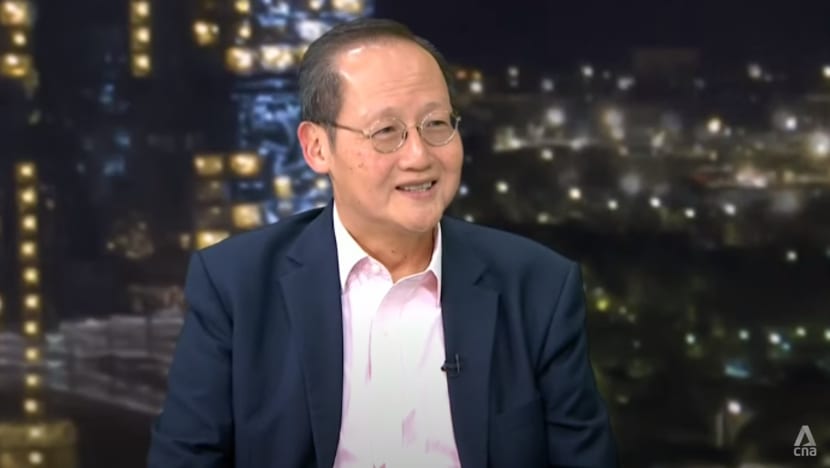Skilled foreign employees can help strengthen local workforce, transfer expertise: Tan See Leng
While the job market is looking up, Dr Tan has cautioned that the nation needs to strengthen its local workforce and be better prepared for global headwinds.

Singapore's Manpower Minister Tan See Leng speaks during an interview on CNA's Singapore Tonight.
SINGAPORE: While Singapore’s job market is looking up, with robust employment numbers and strong wage growth, Manpower Minister Tan See Leng cautioned that the nation needs to strengthen its local workforce and be better prepared for global headwinds.
“We had a good run last year. But there are headwinds that are actually not in the distant horizon, they are quite near, with all the global uncertainties and volatilities,” Dr Tan said on Wednesday (Mar 1).
“This is the best time – while we are on a bit of a roll – to seize whatever opportunities that can come our way and make sure that we are better prepared.
“We need to continue to strengthen the entire local workforce, and help to secure safer, progressive, more inclusive workplaces to ensure that all Singaporeans have fair and equitable work.”
Job numbers have seen a stellar rebound since the COVID-19 pandemic, easing of restrictions, and recovery of sectors.
Total employment grew for five straight quarters and ended 2022 with a record 231,700 jobs, surpassing its pre-pandemic level by 3 per cent, said the Manpower Ministry (MOM).
Dr Tan, who is also Second Minister for Trade and Industry, said that forward-looking policies enabled the good results last year.
LEARNING FROM FOREIGN CO-WORKERS
Moving forward, one focus would be to ensure that local workers can learn valuable expertise from their highly-skilled foreign colleagues.
The new Manpower for Strategic Economic Priorities (M-SEP) scheme launched last December allows firms that have expansion plans to temporarily bring in more foreign hires above the quota for their industry.
“We want to ensure that the talent that we bring in are at (a certain) level, to be able to not just become rainmakers, but they also have the skill sets and tech expertise, to transfer to or teach our own local graduates, our own local talent as well,” Dr Tan told CNA’s Singapore Tonight.
“The skills that they bring in can be complementary to our local workforce. And together, it becomes a win-win partnership, we can then forge and form the best teams to go out and compete globally.”
Dr Tan added that as Singapore is a small nation with population constraints, local employees need to “work with the best and collectively leverage each other's strengths … to stay in the top league”.
‘LEVEL UP’ THE LOCAL WORKFORCE
With constant upgrades in relevant skills and shifting trends in the job market, such as the rapid digitisation of many industries, Singaporeans need to stay up to date and adapt to change, said Dr Tan.
“Because of accelerating changes happening around the world, all the disruptions happening in the tech industry, financial services, as well as in healthcare, we need to make sure that we keep constantly abreast and ahead of these changes,” he said.
The Complementarity Assessment Framework (COMPASS), which will start in September, is a foreign workforce policy that will allow firms to bring in overseas workers for roles that are short in supply of Singaporeans.
These foreign employees can support the development of the local talent pool and “help to level up our own people”, said Dr Tan.
In addition, the Government has also invested significantly in initiatives to help the local workforce upskill and stay relevant, he said.
For instance, Workforce Singapore’s (WSG) Career Conversion Programme helps mid-career workers undergo skills conversion to equip them with expertise for new roles or sectors, and can give participants an edge when it comes to career progression.
















